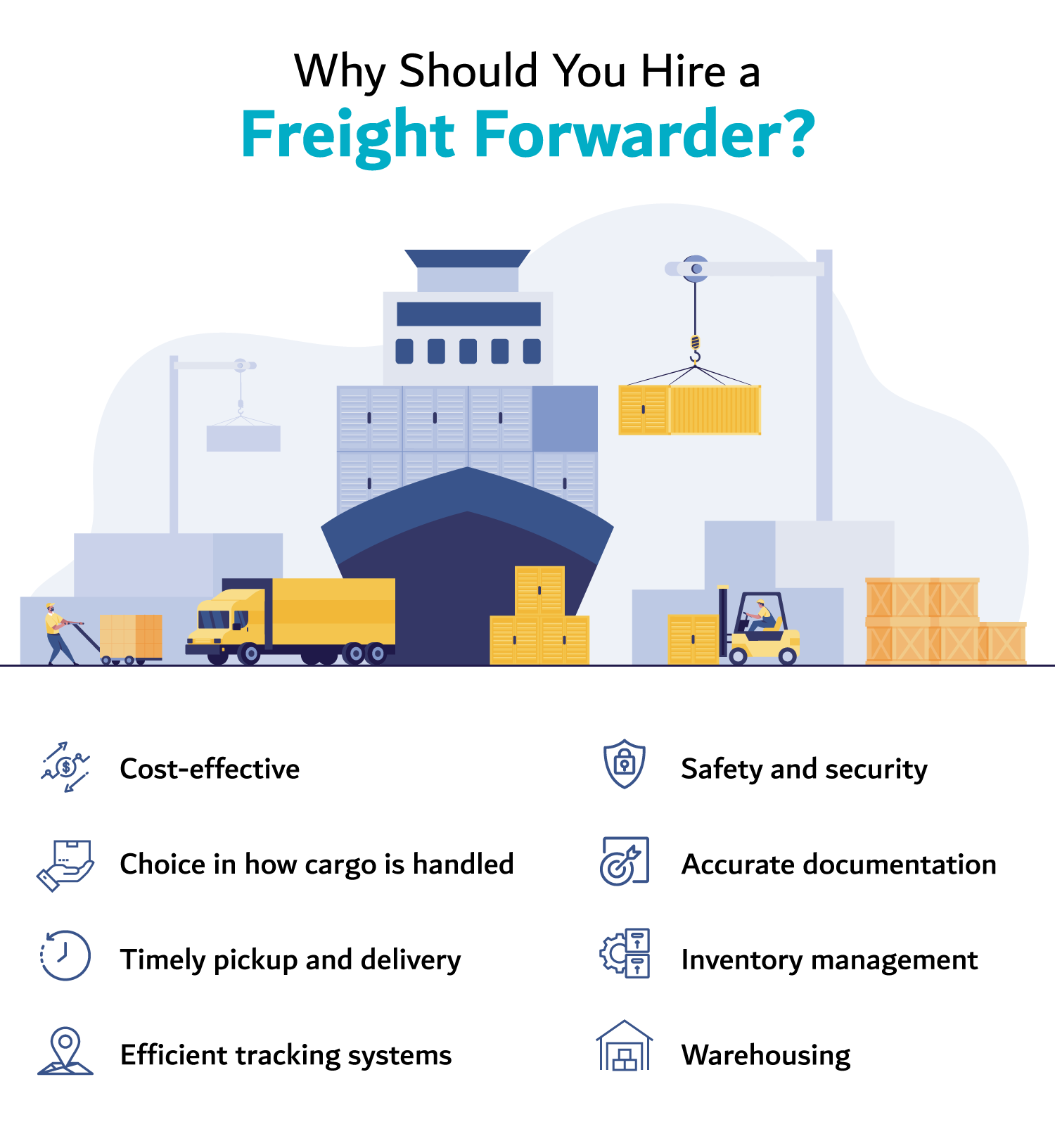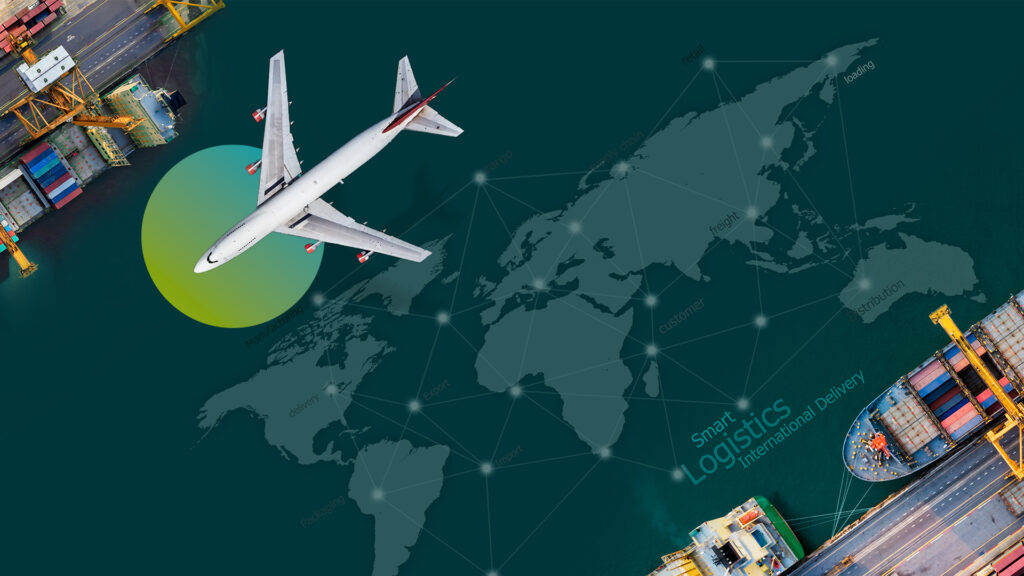The UAE is an excellent location for international trade because of its well-connected air and sea routes and developed infrastructure. These factors have greatly encouraged logistical development on a national scale. According to research from the imarcgroup, the UAE logistics market is anticipated to grow 6.49% annually from 2022–2027.
If you are an investor or entrepreneur looking to start a cargo and freight consultancy in the UAE, this post will help you better understand the industry and the regulations involved in operating in the UAE. In this article, we cover the following topics:
- What does a cargo and freight consultant do?
- Market opportunities for cargo consultants in Dubai, UAE
- Who are the shipper, consignor, and consignee in logistics?
- What does a freight forwarder do?
- Advantages of hiring a freight forwarder
- Freight forwarders vs. freight brokers
- Do I have to pay customs charges if I import goods to the port and export them immediately?
- Do I have to pay tax if I sell goods to companies in mainland Dubai?
- How do I export goods from the local market through a free zone?
- Why Meydan Free Zone?
What does a cargo and freight consultant do?
Those in the import and export business know that the shipping industry is crucial to the success of businesses, customers, and international trade. But it is complex. The high expense of shipping, along with the complexities of marine trade, necessitates the use of cargo and freight consultants.
A shipping consultant helps individuals, organisations or large corporations ship products. Consultants must be well-versed in shipping rules and regulations. These regulations might be simple or complex, depending on the nature of the shipment and its final destination.
Most of the time, the transport management services start with a freight review project to find the best carriers for each client’s freight needs. Their knowledge of the freight market, along with the strengths and experience of their carrier network, can help them find a better way to distribute goods than the shipper could do on their own.
A freight consultancy is not limited to working with a certain carrier. Therefore, they may provide more flexibility when developing tailored solutions for their clients. There is a larger variety of options, better control, and visibility on costs as the shipper may keep direct contact with the consultants’ supplied carriers – all while still enjoying the value-added services.
Market opportunity for cargo consultants in Dubai, UAE
The strategic placement of crucial UAE ports as transshipment hubs between Asia and Europe, the growth of international trade, and the development of the UAE’s e-commerce industry have led to a growing need for logistics services in the country. Additionally, the expanding use of AI, blockchain, and other cutting-edge technologies such as automated material handling equipment and the rise of GPS- and RFID-enabled gadgets is boosting the logistics industry in the nation. Due to all these factors, the government has increased spending on modernising seaports, distribution centres, free zones, and freight terminals.
Who are the shipper, consignor, and consignee in logistics?
Logistics is the practice of organising the production and distribution of commodities to fulfil customer demand. Within a supply chain, the logistics company plans, executes and oversees the transportation and storage of products, services, and information. Within the logistics ecosystem, you will find:
- Shipper: The person or business responsible for supplying the products.
- Consigner: The individual or business identified on the bill of lading (BL) as the entity responsible for initiating the shipping of goods. In most cases, they are the ones who sell the items.
- Consignee: The party listed on the bill of lading (BL) or air waybill (AWB) as the cargo’s recipient.
What does a freight forwarder do?
A freight forwarder is a third party coordinating the transportation of goods and any necessary documentation on behalf of a shipper or consignee. Freight forwarders negotiate the best price for freight transportation by leveraging existing partnerships. These movements take place along the most efficient paths through competitive bidding and contracting procedures. The ultimate objective is to identify a carrier that offers the optimal mix of price, speed, and dependability. They will also take care of the paperwork involved in overseas shipments.
Advantages of hiring a freight forwarder
As with any logistical service, the end-to-end process involves several variables. Here are some advantages of hiring a freight forwarder:
- Prices for freight forwarding services vary from company to company but are often competitive. Moreover, they may provide discounts by pooling the freight of several consumers as it reduces the less-than-container freight expenses.
- Typically, freight forwarders focus on one particular service, one kind of transportation, or one geographical area. This enables the organisation to choose which services the forwarder will manage. As a result, the business has more say over how its cargo is handled.
- When bringing goods into or out of the country, knowledge and experience are important. Logistics companies are always up to date on the latest customs regulations. They can also process paperwork, make tariff payments, and manage tax affairs.
- A freight forwarder’s capacity to supply trade-related services is a big plus. Services include inventory management, freight insurance, documentation, and bank paperwork.

Freight forwarders vs. freight brokers
Freight forwarders and freight brokers are two terms that are often used interchangeably but have distinct roles in the logistics industry.
The role of a freight broker is to facilitate communication between shippers and carriers. They are not responsible for or in possession of the freight. Therefore, they are not accountable for any claims related to damaged goods.
On the other hand, freight forwarders will store clients’ physical freight. They also take care of shipping the goods. While they provide the same services as freight brokers, they use their own bill of lading when transporting goods. They will also insure the cargo and store it in warehouses. Freight forwarders often do not have their own fleet of vessels or other vehicles.
Do I have to pay customs charges if I import goods to the port and export them immediately?
No, as long as the goods don’t enter mainland Dubai, there will be no import/export tax. Some businesses buy spices in bulk, repackage them in the ports, and re-export them to different countries. So custom duties are not charged for goods that are re-exported.
Do I have to pay tax if I sell goods to companies in mainland Dubai?
Yes, goods sold in mainland Dubai are subject to a value-added tax (VAT) of 5%. Dubai has implemented a VAT on the purchase of some products and services as of the beginning of 2018. Healthcare, education, and essential foods are all subject to the VAT in Dubai. There is an excise duty of 50% to 100% on luxury items. For instance, the excise duty on energy drinks, expensive automobiles, and tobacco goods is 100%.
How do I export goods from the local market through a free zone?
Once you set up a thriving business in a free zone,you may have to consider renting warehouse space. Then the local exporter must submit a local export declaration, and the free zone licensee must file free zone bills of entry to legally import products into the free zone (FZ transit bill). They must then complete the following steps:
- The free zone’s licensing administration places delivery orders with a licensed company.
- Copy of the shipment’s delivery advice to the free zone
- The relevant authorities issue an import permit for prohibited items.
- Sales invoice from the local vendor to free zone licensee showing the total amount, product description, currency, and each item’s worth.
- A detailed list of how each item in the shipment is packed, including its weight, packing method, and HS code.
Why Meydan Free Zone?
Meydan Free Zone is a fantastic location for setting up your company and offering cargo and freight consultancy. We have state-of-the-art internet connectivity in all of our offices, which is crucial for providing real-time logistical information on your clients’ items. Our round-the-clock availability means you may serve clients anywhere globally without ever missing a beat.
One of the benefits of opening your company with Meydan Free Zone is getting a premier location for a business address. Located in The Meydan Hotel, Meydan Free Zone is 15 minutes from Dubai International Airport and has quick access to Downtown Dubai, Dubai Media City, and Sheikh Zayed Road.
Of course, there are other benefits to setting up a business in a free zone, such as no sales tax, no use tax, and no income tax. At Meydan Free Zone, our goal is to help set up companies and turn them into successful enterprises. Our consultants will support you with all aspects of your business setup in Dubai, so you can focus on finding the best carriers for your clients’ freight needs.

